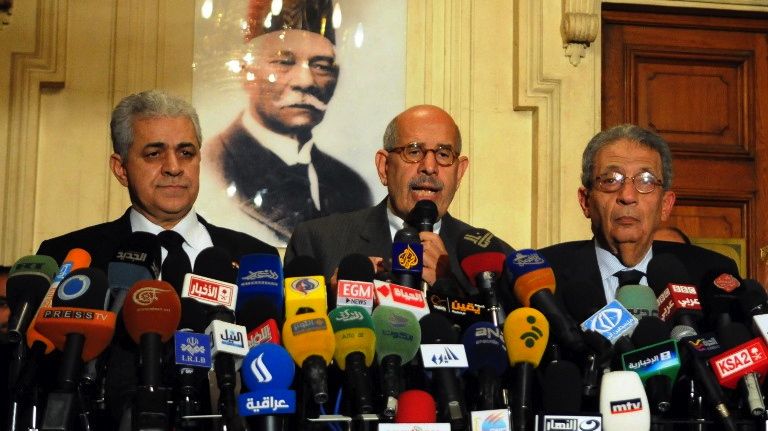SUMMARY
This is AI generated summarization, which may have errors. For context, always refer to the full article.

CAIRO, Egypt – Top opposition figure Mohamed ElBaradei called on Saturday, February 23, for a boycott of Egypt’s upcoming parliamentary elections, likening the poll to the “sham democracy” of ousted president Hosni Mubarak.
“Called for parliamentary election boycott in 2010 to expose sham democracy. Today I repeat my call, will not be part of an act of deception,” the Nobel Laureate wrote on his Twitter account.
Another National Salvation Front (NSF) opposition leader, former foreign minister Amr Mussa, said many members of the opposition coalition were inclined to boycott the four-round election but a final position had not yet been taken.
“There is a large group that wants a boycott, but it has not yet been discussed, and no decision has been taken,” he told AFP.
The election is scheduled to begin on April 27, with a new parliament to convene on July 6.
State television reported that the presidency was considering changing the starting date of the vote because it falls on a Christian holiday, after objections from the Coptic Church.
ElBaradei, who did not elaborate his call on Twitter, raised the suspicion that the vote will be rigged as was the case in a 2010 election under Mubarak.
Leaders of the NSF, a coalition of liberal and secular leaning groups, have previously proposed a postponement of the vote.
The coalition organised massive protests against Egypt’s Islamist President Mohamed Morsi in November and December after he adopted now-repealed powers that shielded his decisions from judicial review.
But anti-Morsi protests have slowed since he pushed through an Islamist-drafted constitution in a December referendum, with the mass rallies giving way to smaller, and often violent, protests.
The opposition, less organised than Morsi’s Muslim Brotherhood, has insisted the president appoint a new government before the election while the presidency says the new parliament should have the right to appoint the cabinet.
The Brotherhood and Islamist allies dominated the last parliamentary election in 2011 that resulted in an Islamist-majority house which a court annulled on a technicality before Morsi’s election last June.
But due to increased anti-Morsi sentiment, Hamdeen Sabahi, another NSF leader, has said the opposition coalition could now win up to 50 percent of seats in parliament if it chose to contest the election. – Rappler.com
Add a comment
How does this make you feel?
There are no comments yet. Add your comment to start the conversation.